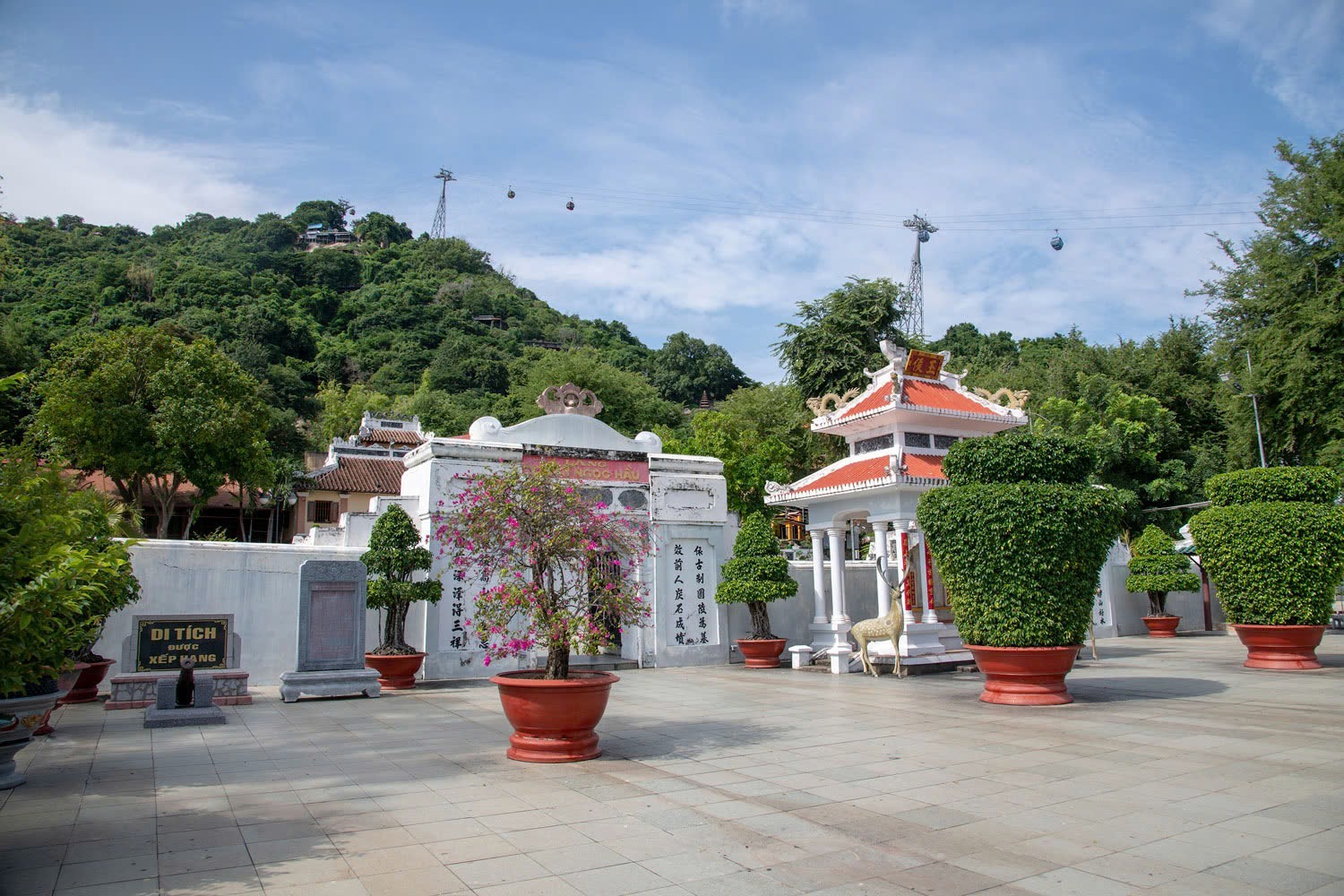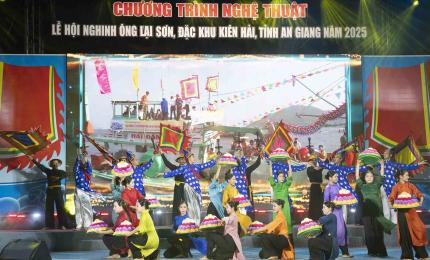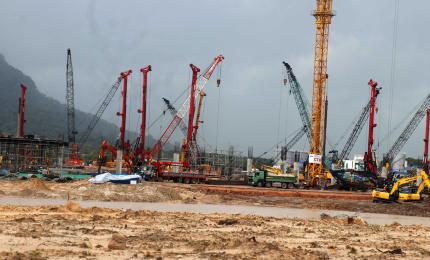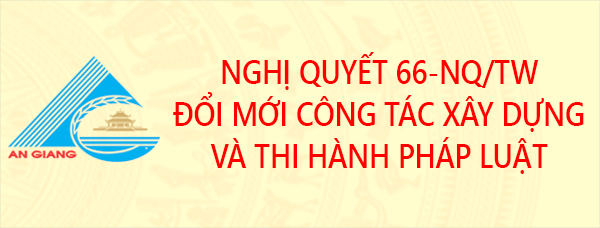Madame Chau Thi Te (1766-1826), the eldest daughter of Mr. Chau Vinh Huy and Mrs. Do Thi Toan, who were from a respected scholarly family in Thoi Binh village, Dai Islet (Co Chien River), now part of Thanh Binh Commune, Vung Liem District, Vinh Long Province. Her family, esteemed in the community, belonged to a literary class admired for its cultural values.
Thoai Ngoc Hau Tomb (Nui Sam ward, Chau Doc city)
Madame Chau Thi Te was the first wife of Lord Nguyen Van Thoai, a distinguished official of the Nguyen dynasty. After 1802, as the dynasty solidified its rule, Nguyen Van Thoai was entrusted with key positions by the court, including Commander of Lang Son, Dinh Tuong, and Protector of Cambodia. As his steadfast partner, Madame Chau Thi Te endured both the joys and hardships of his life, accompanying him across regions from southern Vietnam to remote Cambodia.
In 1817, when Nguyen Van Thoai was appointed Commander of Vinh Thanh, a new chapter opened for the couple’s shared commitment to public service. Their influence extended beyond governance as they founded five villages in Dai Islet and continued to establish connections in the southwestern region. In 1818, Commander Nguyen Van Thoai, under the commission of Emperor Gia Long, undertook the monumental task of excavating a canal to connect Dong Xuyen and Rach Gia. Completed within a month, the project was lauded by the emperor, who named it Thoai Ha (Thoai River) in honor of Nguyen Van Thoai.
Behind the success of this ambitious project was the unwavering support of Madame Chau Thi Te. Not only did she tend to her husband’s needs, but she also took on the logistical responsibilities of ensuring provisions, healthcare, and morale among the laborers. Her adept management during this canal’s excavation became invaluable when Nguyen Van Thoai embarked on a more arduous endeavor—the Vinh Te Canal, stretching from Chau Doc to Ha Tien, constructed from 1819 to 1824.
Madame Te’s dedication extended beyond construction projects; she contributed to settlement efforts, helping establish villages in the Dai Islet region, including Vinh Te mountain and Vinh Te village. Despite the era’s limited recognition of women’s roles, Madame Te’s substantial contributions garnered the respect and admiration of the royal court. In honor of her legacy, Emperor Minh Mang named the 97-kilometer canal Vinh Te after her, marking the first time a woman’s name was bestowed on a river, mountain, and village.
Madame Chau Thi Te’s final days were spent in Chau Doc, where she passed in 1826. In acknowledgment of her selfless service and profound virtue, Emperor Minh Mang posthumously honored her as “Calm Lady." Her legacy endures as a symbol of noble commitment, and her contributions remain deeply etched in the collective memory of the people of An Giang and southern Vietnam.


Today, statues, temples, and schools bear the names of Nguyen Van Thoai and Chau Thi Te, celebrating their historical impact on the southwestern region. Their names, along with the canal, mountain, and villages, serve as lasting tributes to their exceptional contributions to the development of An Giang and beyond.
Excerpt from the “Outline for the 200th Anniversary Commemoration of the Completion of Vinh Te Canal (1824-2024) and the 198th Memorial of Madame Chau Thi Te’s Passing (1826-2024)”
Source: tuyengiaoangiang.vn
Translator: Kim Thuan



























